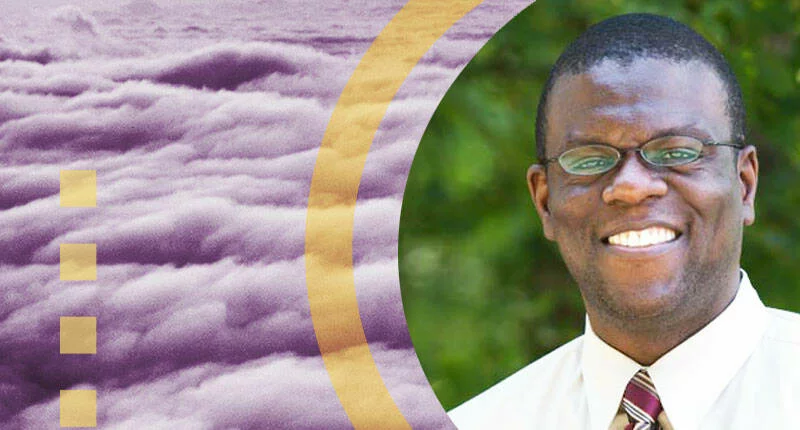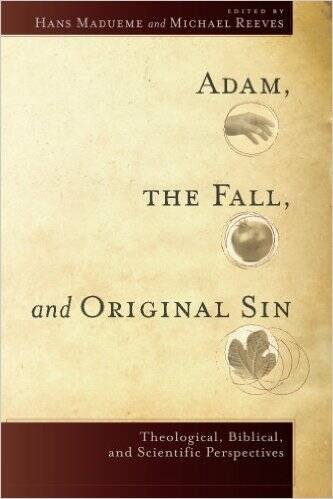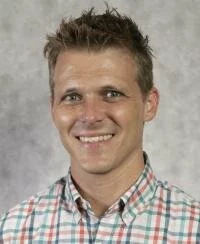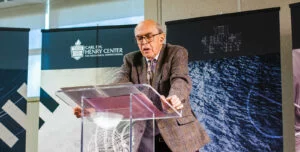Hans Madueme is both a doctor and the son of a doctor. Born in Sweden, the son of a Nigerian nuclear physicist, Madueme was destined for a successful career.
Like a prize horse, he was not only born from the right family line, but also received the proper grooming and training: boarding school in England; undergraduate training at McGill University, then on to Medical School at Howard University and an Internal Medicine residency at Mayo Graduate School of Medicine.
But something unexpected happened along the way.
An Unexpected Journey
Going into his second year of college, he encountered the living Christ in a saving way. While his medical training continued, along with the expectations of a noble career that would accompany it, Madueme’s affections turned to concerns for the Christian life and faith. Then, in medical school, and especially in a psychiatry course, questions of the integration of his faith and his medical training began to arise more intensely.
“That experience drove me to theology,” Madueme recalls.
He began pressing into the implications of his beliefs, asking questions like how the doctrine of sin relates to extra-biblical, scientific areas of knowledge. “Relatively new to the faith, I was casting about for answers to my vexing questions.” “Relatively new to the faith, I was casting about for answers to my vexing questions.”Madueme would finish his medical training and his residency, but theology had become his first love.
After completing his residency at Mayo, Madueme sensed an “irresistible and irrevocable” call to ministry. The next decade would take him to Trinity Evangelical Divinity School, where he would complete three theological degrees, culminating with a PhD in Systematic Theology, bringing this long, and unexpected journey to a completion, and setting the course of ministry to come. “By the time I was deciding on a research topic for my dissertation, my fate was sealed,” says Madueme. “I knew I had to investigate questions at the interface of science and Christian hamartiology [doctrine of sin].”
“The chickens,” says Madueme, “had come home to roost.”
He completed his PhD in 2012, and soon after accepted a faculty position at Covenant College. His vocational career had begun. Within two years, Madueme published his first edited volume–with Michael Reeves, eds., Adam, The Fall, and Original Sin—and his engagement with modern science has remained at the center of his calling to this day. Most recently, Madueme was also one of five scholars selected for the 2016-17 Henry Resident Fellowship. He will be working on a project entitled, The Evolution of Sin? Sin, Theistic Evolution, and the Biological Question—A Theological Account.
The Making of a Life-long Project: The Evolution of Sin
Madueme’s theological interests, questions, and sense of call were forged in the shrine of modern science, the hospital. He is thus acutely sensitive to the ways that moderns—including Christians—implicitly think about human personhood, including what it means to be a sinner. “Religious people think very differently about sin these days,” he says. And science plays an important role in this. “Scientific fields like evolutionary biology, paleoanthropology, genetics, and the neurosciences suggest that human behavior is more biological than we could have ever imagined.”
Madueme can rattle off some peculiar cases, like the middle-aged man whose addiction to child pornography was eventually identified as caused by a brain tumor. Needless to say, such a case raises questions about the traditional notion of sin: “Is sin a biological problem? Did sin arise as part of the evolutionary process? If sin is in some sense biological, can pharmaceutical drugs produce sanctification?” These questions aren’t intended to be humorous; they press into deep assumptions and beliefs of our age. More to Madueme’s concern: they are also theological questions.
Madueme’s project, The Evolution of Sin?, is intended to address precisely these sorts of questions. Working at the intersection of dogmatic theology and modern science, Madueme will examine a number of important proposals that incorporate biological concepts into the doctrine of sin. “While we have much to learn from these interdisciplinary models,” Madueme cautions, “they also raise difficult questions.” Developing on the work begun in his dissertation, Madueme hopes to update the traditional Augustinian (and Reformed) understanding of sin in ways that respond to the questions of our modern age.
The Future of Theology and Science
The popular image from the media presents science and religion in an insurmountable conflict, and this is perpetuated both among the so-called “New Athiests” and some Christian circles, who share the New Athiests’ conviction that modern science is inherently anti-theological. Many theologians and historians, however, have warned against accepting this exaggerated rhetoric. “The relationship between science and the Bible is remarkably complex,” “The relationship between science and the Bible is remarkably complex, and we should resist simplistic portrayals.”Madueme notes, “and we should resist simplistic portrayals.”
When situated within the modern world, not only sin, but the entire doctrine of creation is not all that it used to be. “Since Darwin primarily, science has revolutionized how modern Christians tend to interpret the world.” These changes—unavoidable even by those who affirm the authority of Scripture and attempt to read it literally—have raised new questions of Scripture, demanded old biblical passages to address new challenges, and brought theologians and other ecclesial leaders into the arena to re-present the Word of God in the Areopagus of our day.
With every challenge also comes opportunity. As for Madueme, he remains upbeat about these opportunities. “I would argue that it is an exciting—if daunting!—time to lay claim to the faith once and for all entrusted to the saints.”
Carl F. H. Henry Resident Fellows (2016-2017)
C. John Collins, “Genesis 1–11: Poetry, History, Science, Truth”
John Hilber, “Relevance Theory and Divine Accommodation”
Hans Madueme, “The Evolution of Sin? Sin, Theistic Evolution, and the Biological Question—A Theological Account”
Clinton Ohlers, “Evangelicals and Genesis, Before and After Darwin”
Todd Patterson, “Mimesis in the Biblical Historical Narrative of Gen 1-2”









Comments
Be the first one to make a comment!